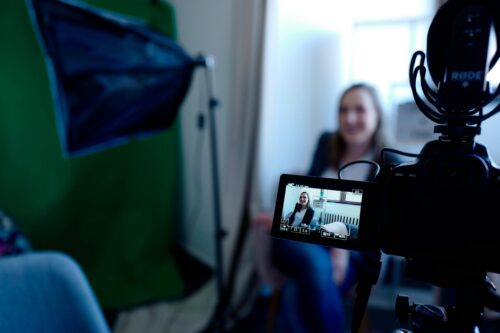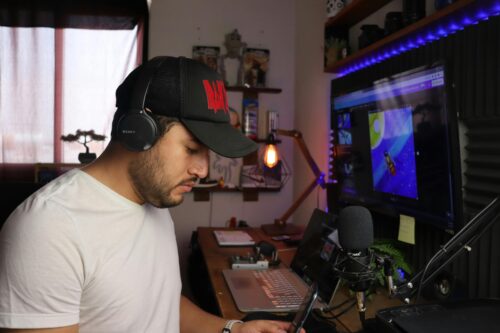
By Sarah Drinkwater, Director, Responsible Technology
Today our grantee, WaitWhat, launched the second season of Should This Exist?, which earlier this year was nominated by the prestigious Webby Awards for best tech podcast in the world.
We put Should this Exist? on the “must listen” list! It stretches your understanding about radically new technology and its implications on our lives — both the promising and perilous. The storytelling is riveting, the topics are supremely well chosen, and the show’s host — Internet serial entrepreneur and investor Caterina Fake — masterfully guides listeners on unforgettable journeys alongside the inventors of our times. In each episode, Caterina engages with a groundbreaking technology — from contact tracing, to a robot caregiving, to deepfake video production — to ask the important questions. The show surrounds you with ideas and interpretations, but ultimately leaves it to you to decide if the tech should exist, and how it should.
We’re excited to support this show because the world is hungry for this kind of conversation, as we’ve seen with interest in Ethical Explorer and in Netflix’s recent The Social Dilemma. We want to imagine and guide technology to its greatest potential and help technologists navigate around unintended consequences that are so hard to anticipate.
After you subscribe here to the podcast, you might want to sign up to the weekly newsletter.
Here’s a custom link to today’s show if you’d like to share, and below, you can read more about our first three episodes.
LISTEN: http://listen.shouldthisexist.com/Omidyar
Premieres Wednesday, October 14:
The deepfake detective
Chances are, you’ve seen a “deepfake” video. But did you know it? A new breed of tech detectives are building tools to spot these hyper-realistic videos — built with AI — where people say things they didn’t say or do things they’d never do. Some of these clips are just good, fanciful fun. But a deepfake deployed at the right moment could sway an election, or wreck a life. That’s why UC Berkeley professor Hany Farid is working on a “deepfake detective” — a tool to help media outlets know what’s real and what isn’t. But the same program could also give deepfakers a blueprint for how to make their work undetectable. Deepfake technology already exists. This episode asks: What should we do now?
Premieres Thursday, October 15:
Contact tracing: So promising. So invasive.
It’s one of the best weapons we have to contain a pandemic. But can it defeat the disease without spying on people who might carry it? MIT’s Kevin Esvelt has a bold idea: Let’s try a new form of contact tracing that could more than double the program’s impact. Bi-directional tracing looks both forward and backward from a known transmission, building a chart of the “undiscovered branches of the viral family tree” and identifying potential spreaders other systems can’t see. But how much of our data are we willing to give the government, even if it’s to fight Covid-19?
Premieres Wednesday, October 21:
Grandma, here’s your robot
Is it the loneliest idea you’ve ever heard? Or an ingenious hack that helps human caregivers be more attentive and empathetic? You might have these questions when you meet the robot caregivers who roam the halls at retirement homes, doing basic tasks for residents and keeping them connected. Is elder care something we want a robot to do? Roboticist Conor McGinn from Trinity College Dublin actually moved into a retirement home in Washington, DC, to gain a deeper understanding of what residents might want from a robot. The answer surprised him, and it prompts deeper questions: As humans, what responsibility do we have toward our elders? When we fail them, should robots close the gap? And is that the future we want for ourselves?

